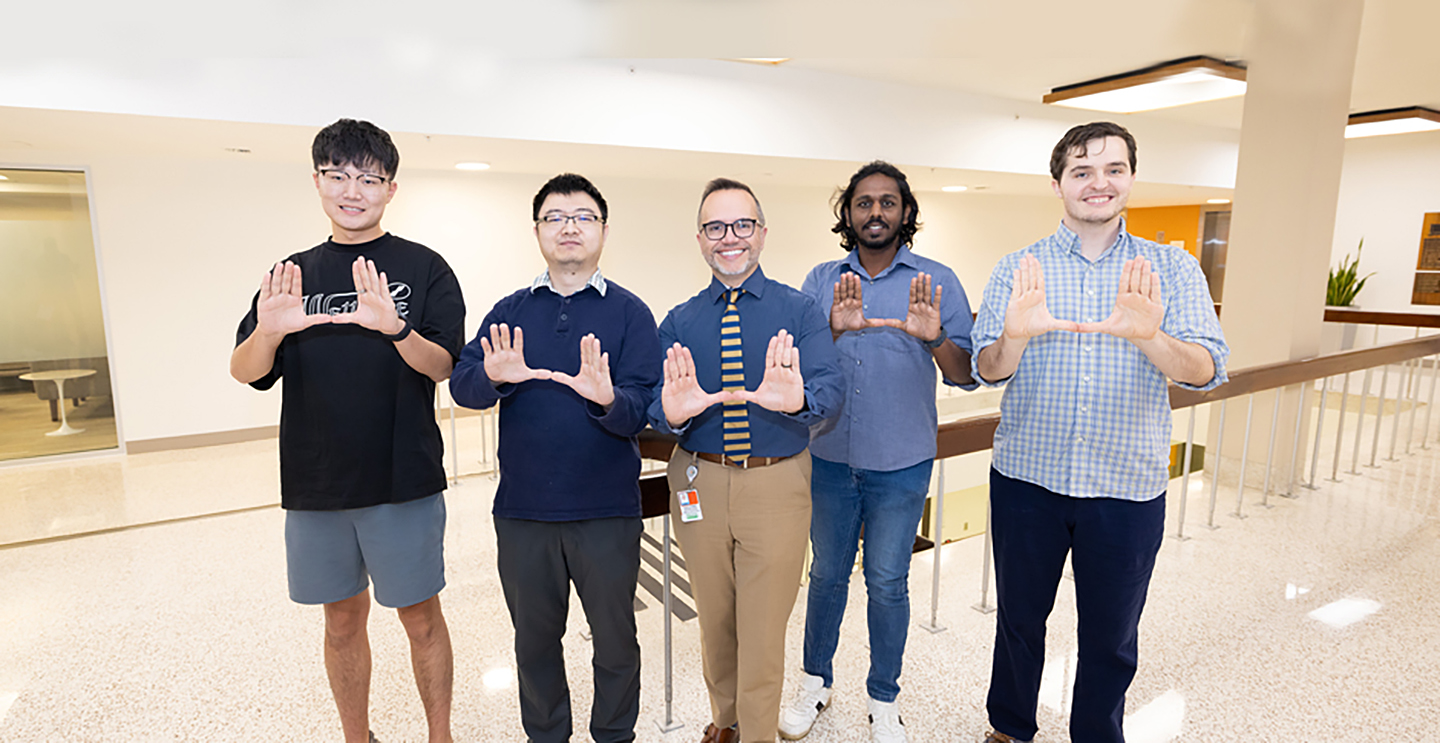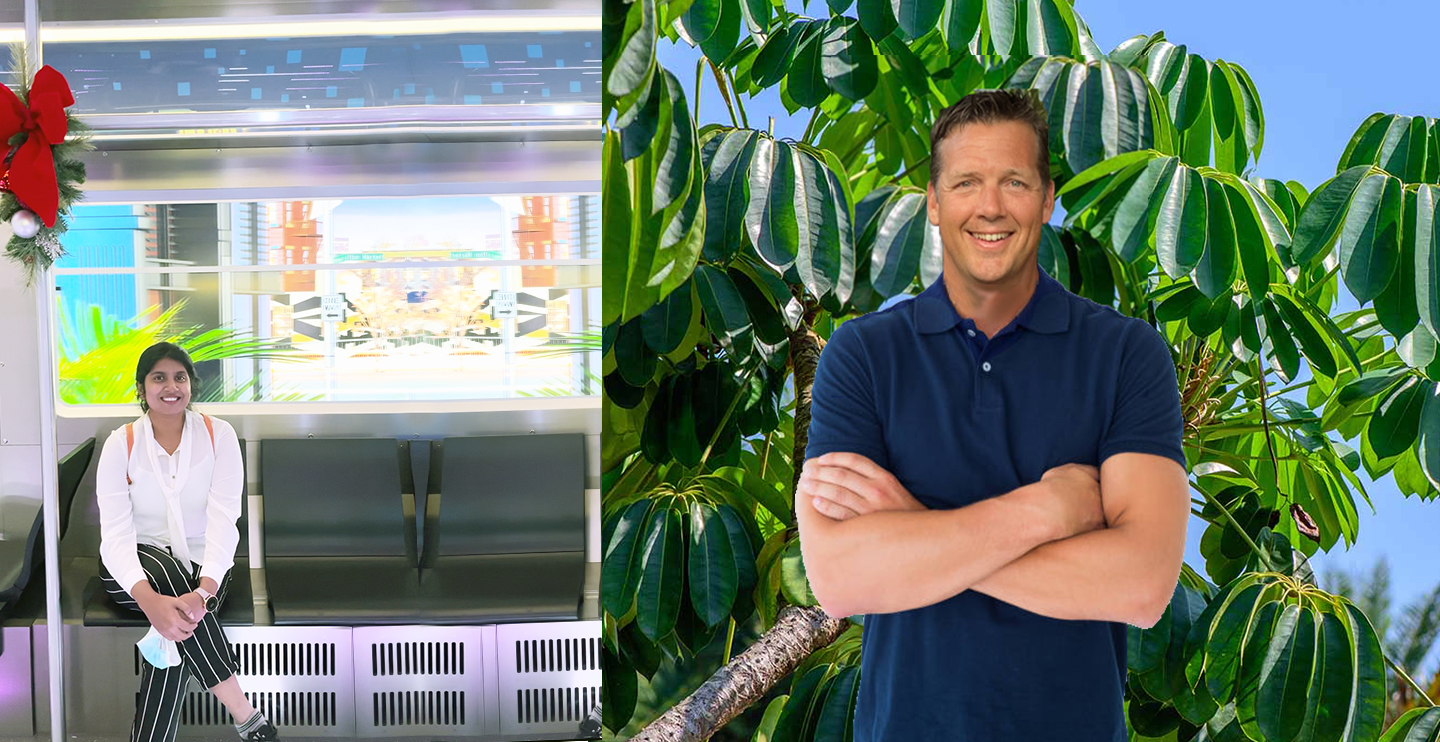Thanks to the new Provost’s Fellowship in Interdisciplinary Computing, several graduate students are able to devote their full attention to cutting-edge research projects in their chosen subject areas. One project could help medical researchers understand communication in the brain.
Another looks to uncover key attributes that may help forecasters determine when a tropical disturbance is likely to become a major hurricane. These are the goals of just two of six graduate students who recently were awarded the first Provost’s Fellowship in Interdisciplinary Computing. Each student is exploring a different way they can use advanced technology to improve our world.
Open to full-time doctoral candidates in their first, second, or third year of study, the fellowships were designed for students whose research involves computational science, data science, machine learning, or artificial intelligence, and who are applying these methodologies to advance knowledge in their chosen subject area. The awards include a generous stipend that will allow these students to focus on research projects, and ideally, to garner external grant funding for their work.
“You all represent the very best students working in computing across the institution, and we are very glad to offer you this fellowship for the very first time,” said Guillermo “Willy” Prado, interim executive vice president for academic affairs and provost.
The fellowships are one part of the Computing at UM initiative, which falls under the University’s strategic plan, the Roadmap to Our New Century. Awardees of this initial fellowship include (pictured L to R at above):
Jieming Bian, a third-year doctoral student in electrical and computer engineering, is trying to create a machine learning model that will allow hospitals to share deidentified patient data. Ultimately, the goal is to help create stronger AI diagnosis tools that can assist physicians to offer more efficient and accurate diagnoses. Bian is working under the mentorship of Jie Xu, an associate professor of electrical and computer engineering.
Jieyuan Tian, a third-year doctoral student in computer science, is hoping to create a noninvasive way to record brain signals deep within the body’s most complex organ. Toward that goal, he is developing a nanoparticle that could be injected into the brain to record and stimulate deep brain activities. Currently, the only method able to do such firsthand brain research involves placing needle-like probes into the brain. However, Tian is using extremely tiny magnetoelectric particles, paired with a computer program to read and record brain signals, to create this method. He is hoping this will increase our understanding of the brain. Tian’s advisor is Sakhrat Khizroev, the Victor P. Clarke Endowed Chair Professor of Electrical and Computer Engineering, as well as a professor of biochemistry and molecular biology.
[And, at center above, Provost Willy Prado.]
Pragatheeswaraan “Praga” Vipulanandan, a second-year doctoral student in electrical and computer engineering, wants to find ways to slow down the proliferation of misinformation on the internet by analyzing data with AI tools. To do that, he is working to quantify the uncertainty in data and in AI-generated predictions, so that end users can assess the reliability of their AI-generated results. He is working with Kamal Premaratne, a professor of electrical and computer engineering, as well as Dilip Sarkar, associate professor of computer science.
Will Downs, a third-year doctoral student in atmospheric sciences, is poring over 20 years of datasets from the National Hurricane Center and the National Oceanic and Atmospheric Administration that track tropical disturbances across the world. Using deep learning techniques, Downs is hoping to identify key components that lead these disturbances to form into tropical cyclones and major hurricanes. His advisor is Sharan Majumdar, a professor of atmospheric sciences.
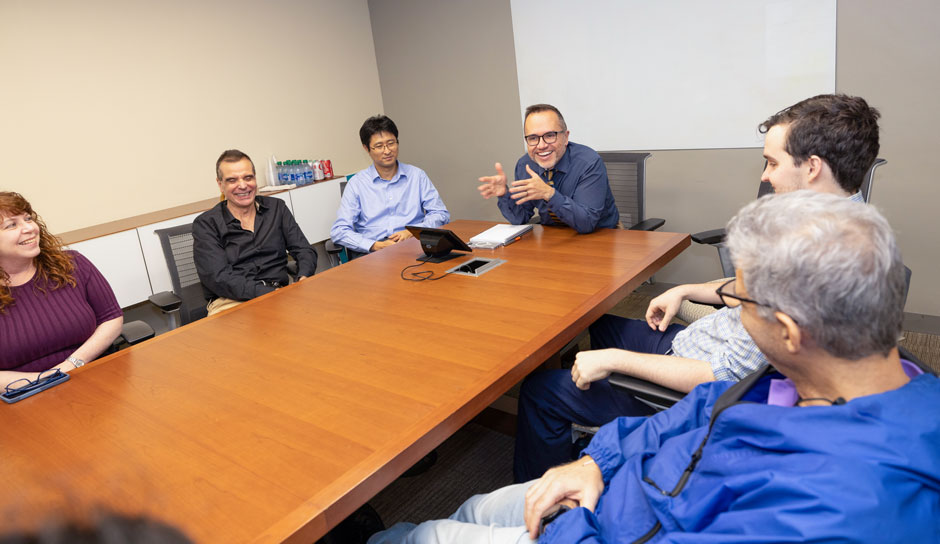
Awardees not pictured above:
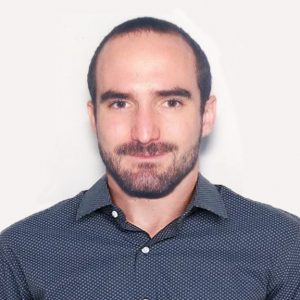 Nicolas E. Catalan, a second-year doctoral student in computer science, is hoping to create a tool that can help diagnose cancerous tissue more efficiently. He is starting with breast cancer—the most common type of cancer worldwide. But he said that he hopes that this deep learning tool, which will be able to detect cancer cells at a microscopic level, also could identify the locations of malignant tumors—in a more effective and fast-paced process that could help reduce wait times for treatment and ultimately prevent the spread of cancer. His advisor is Vanessa Aguiar-Pulido, assistant professor of computer science.
Nicolas E. Catalan, a second-year doctoral student in computer science, is hoping to create a tool that can help diagnose cancerous tissue more efficiently. He is starting with breast cancer—the most common type of cancer worldwide. But he said that he hopes that this deep learning tool, which will be able to detect cancer cells at a microscopic level, also could identify the locations of malignant tumors—in a more effective and fast-paced process that could help reduce wait times for treatment and ultimately prevent the spread of cancer. His advisor is Vanessa Aguiar-Pulido, assistant professor of computer science.
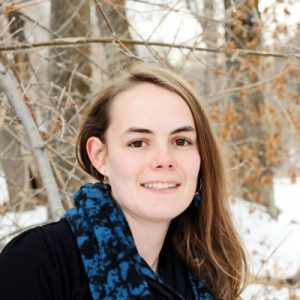 Danae Stephens, a third-year doctoral student in marine biology and ecology, is working to identify new interactions between giant viruses and the smaller virophages that attack them in the genomes of tiny organisms called protists. Her work involves using bioinformatic tools to process huge gene sequences of more than 600 microorganisms, so high performance computing is critical for her research. Stephens’ work “holds the promise to revolutionize our comprehension of viral complexity in nature,” wrote her advisor, Mohammad “Monir” Moniruzzaman, an assistant professor of marine biology and ecology.
Danae Stephens, a third-year doctoral student in marine biology and ecology, is working to identify new interactions between giant viruses and the smaller virophages that attack them in the genomes of tiny organisms called protists. Her work involves using bioinformatic tools to process huge gene sequences of more than 600 microorganisms, so high performance computing is critical for her research. Stephens’ work “holds the promise to revolutionize our comprehension of viral complexity in nature,” wrote her advisor, Mohammad “Monir” Moniruzzaman, an assistant professor of marine biology and ecology.

